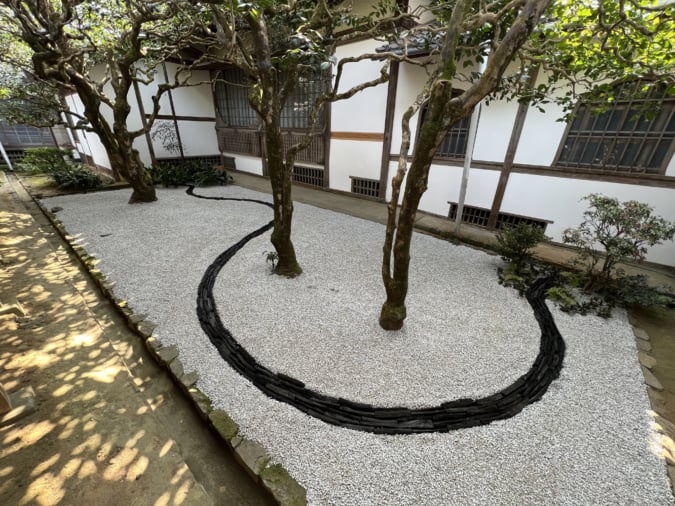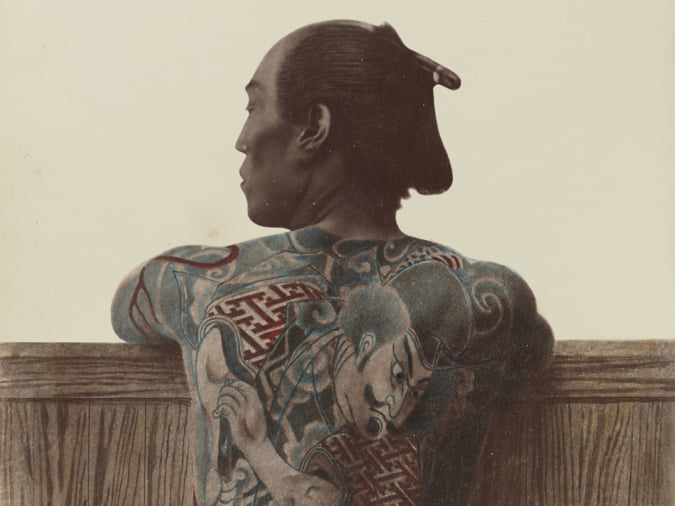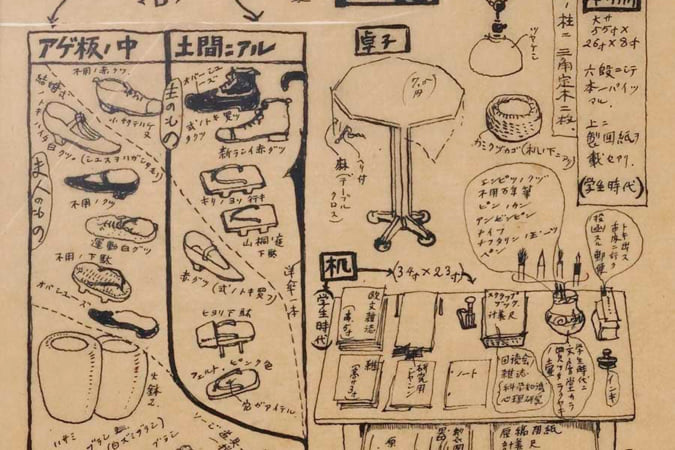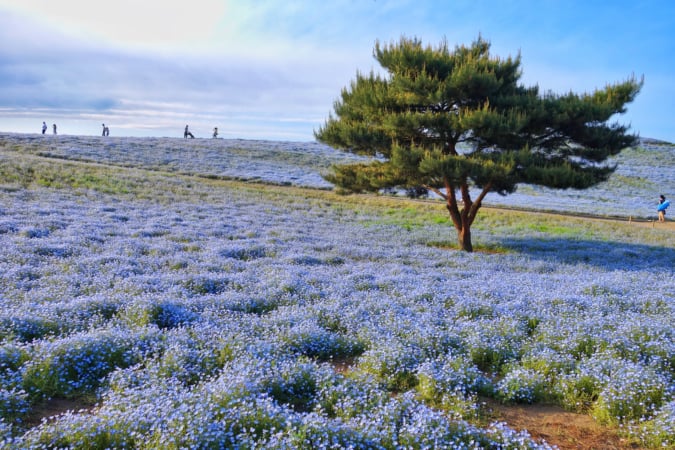Marcos Gois, the Ramen Master of Finland
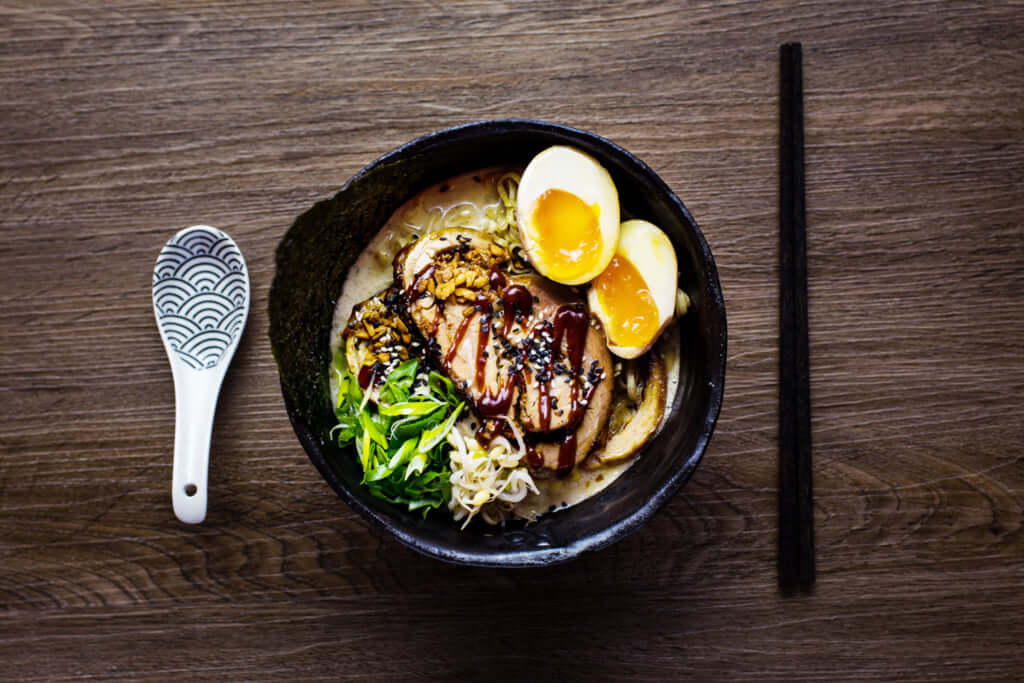
Born to a Portuguese father and a Finnish mother, Marcos Gois grew up with two cultures. In his kitchen, the reputed chef draws on these two influences, all while incorporating flavours from Japanese cuisine. This culinary triptych attracts vast crowds to his two restaurants in Helsinki where diners can try out his Nordic ramen made from Finnish rye served with a lightly spiced sauce.
At the age of just 23 years old, Gois founded Fat Ramen, the first restaurant in Helsinki dedicated exclusively to ramen; it took off right away. His secret was a broth brewed for 14 hours with carefully chosen ingredients, serving 7 different ramens, 3 of which are vegan. The restaurant is equipped with its own noodle machine imported from Japan. His second restaurant, Gohan, is a wine bar with a vast selection of saké, serving seasonally inspired Bentos. All his products are organic and locally sourced. The vegetables come from an organic farm only 15 kilometres from the restaurant in order to give preference to local supply chains and ethical processes. Despite his anchor in the Finnish land, Gois is perpetually gathering inspiration from elsewhere, travelling frequently to enrich his cuisine.
Pen Magazine wanted to know more about the Finnish-Portuguese chef, whose work is little known beyond the borders of Finland.
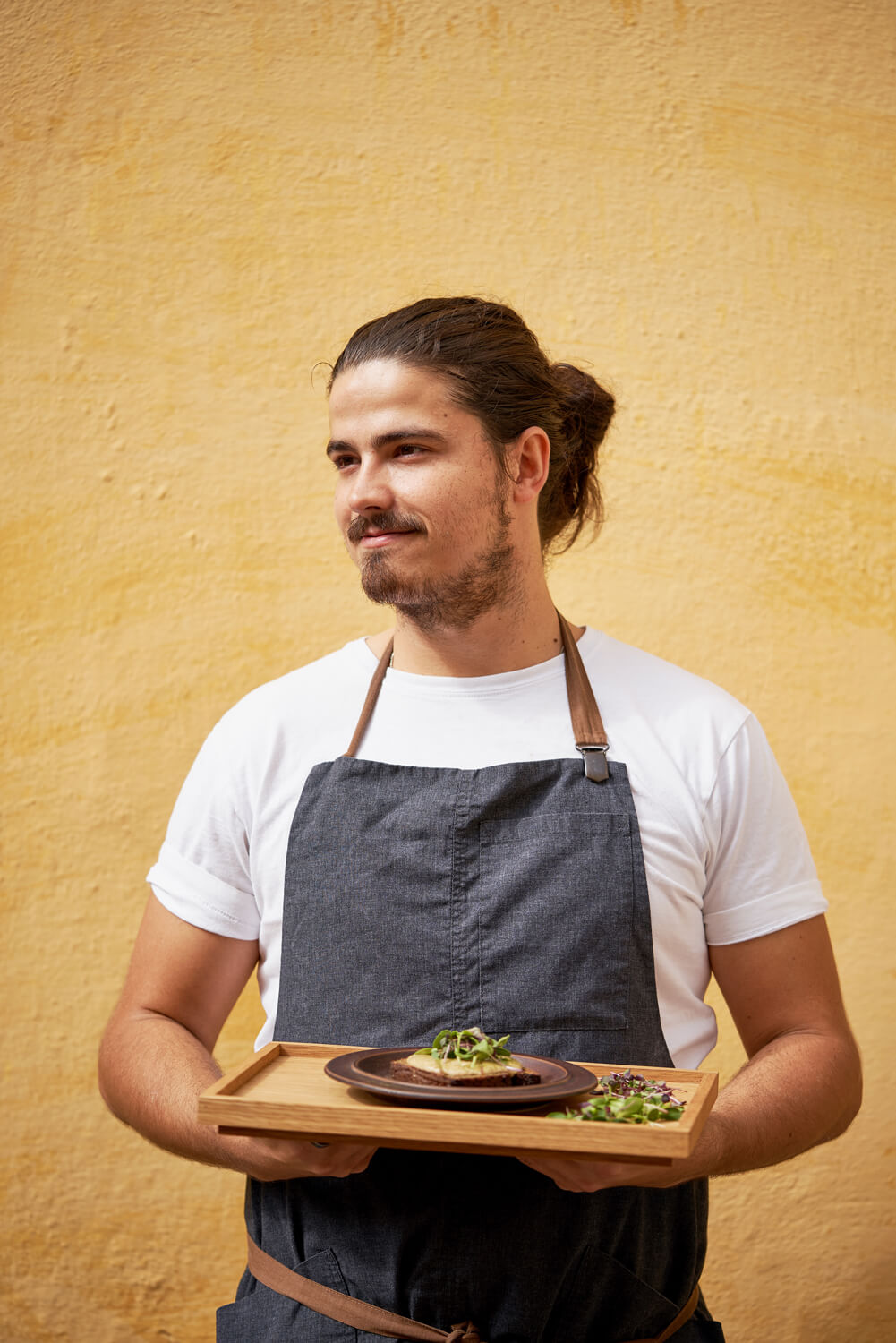
Can you introduce yourself?
My name is Marcos Gois, I’m 27 years old and I was born in Helsinki, Finland. I spent part of my childhood in Portugal in the Madeira Islands. When I was younger, I wanted to become an architect, but in the end it was cuisine which had a major influence on me, and it seemed totally natural to follow this path. I studied to be a chef and after having worked in Finnish restaurants for two years, and spending six months in Italy training at the 3 Michelin starred Piazza Duomo, I opened my first restaurant, Fat Ramen.
Why did you decide to focus on Japanese cuisine?
Japanese cuisine, and beyond just that, Japanese culture, is so important. The devotion and respect for details inspired me greatly. You can find good food everywhere in Japan, even the sandwiches in konbinis like 7-Eleven or Lawson are delicious. I trained in ramen in London in 2014. I loved the complexity and depth of the flavours. In Helsinki ramen was more or less non-existent, so when we opened Fat Ramen, my team and I were starting from scratch.
What does Japanese food mean for you?
It is about quintessential flavours and minimalism. Each product is important and each ingredient has its own subtle flavour, everything is thought out to create a careful balance. There also exists a keen knowledge of different techniques, from slow grilling, to steaming, and this is what makes Japanese cuisine one of the most dynamic and complex in the world.
Where do you find inspiration for new dishes?
The creative process must be free, otherwise creativity dies. Luckily my brain seems to be constantly coming up with new things. The seasonality of local productions does not limit my creativity in any way. My various trips enable me to discover new local culinary trends, whether they are visual or directly correspond to flavour, they amplify my senses and consequently, my future menus.
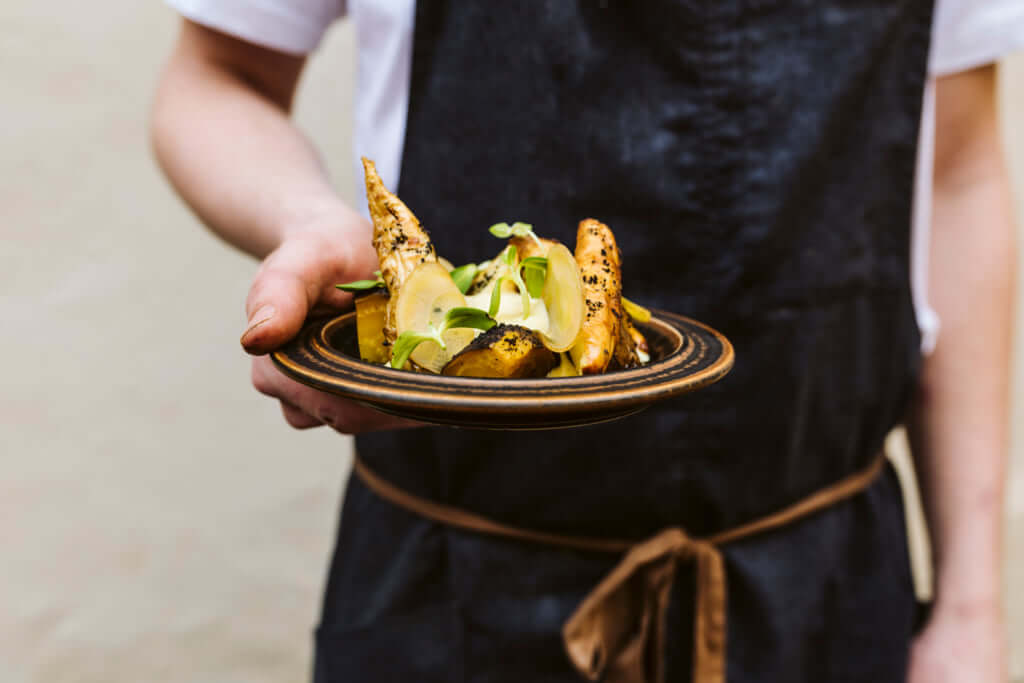
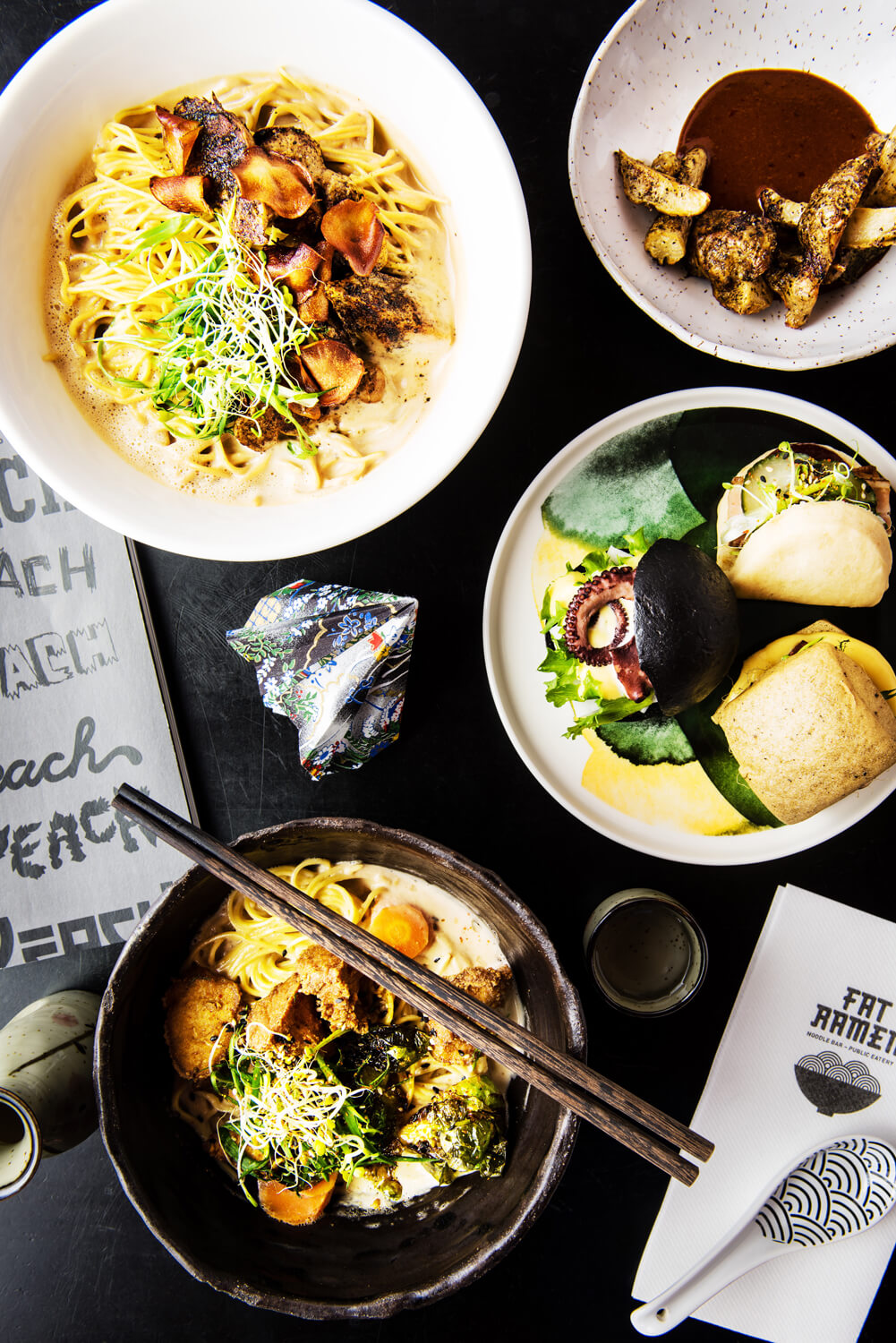
TRENDING
-
A Rare Japanese Garden Hidden Within Honen-in Temple in Kyoto
Visible only twice a year, ‘Empty River’, designed by landscape architect Marc Peter Keane, evokes the carbon cycle.

-
Colour Photos of Yakuza Tattoos from the Meiji Period
19th-century photographs have captured the usually hidden tattoos that covered the bodies of the members of Japanese organised crime gangs.

-
Recipe for Ichiraku Ramen from ‘Naruto’ by Danielle Baghernejad
Taken from the popular manga with the character of the same name who loves ramen, this dish is named after the hero's favourite restaurant.

-
Modernology, Kon Wajiro's Science of Everyday Observation
Makeup, beard shape, organisation of cupboards and meeting places: all of these details decipher 1920s Tokyoites.

-
Hitachi Park Offers a Colourful, Floral Breath of Air All Year Round
Only two hours from Tokyo, this park with thousands of flowers is worth visiting several times a year to appreciate all its different types.

